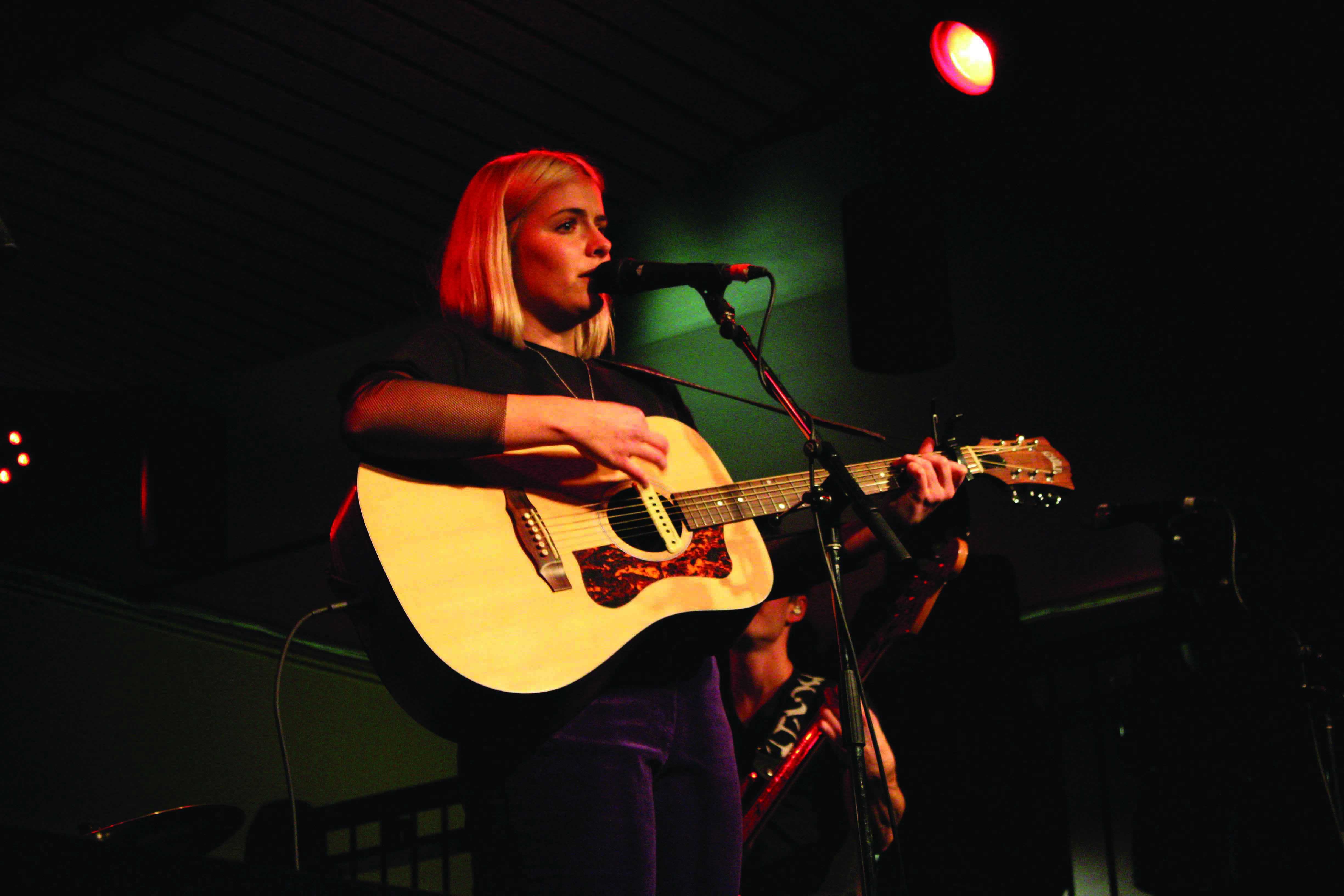Coding lessons for women a hit

author: taylor balfour | news writer

a cooler, more interesting version of the Matrix credit jaecy bells
Ladies Learning Code breaking gender stereotypes
For ages, the computer science field has been a career that is classified as being dominated by men. Women, while allowed to venture into such a field, don’t explore the path as much as men.
In a research report done by Accenture and Girls Who Code in 2016 entitled “Cracking The Gender Code,” they claim that a lack of women in the field has a major impact on the economy of all locations affected.
“According to the American Association of University Women, in recent years only 20 per cent of Advanced Placement (AP) computer science exam takers in high school have been female,” the report states.
In comparison, they include that the numbers grew to “48 per cent for calculus, 59 per cent for biology, and 34 per cent for physics.”
The report even indicates that the number of women pursuing the career field has been declining.
“In 1984, 37 per cent of computer science majors in the U.S. were women. Today, only 18 per cent are.”
Because of this, organizations have been popping up around not only the United States, but in Canada as well. Ladies Learning Code Regina is one of those places.
“We are a not-for-profit organization with the mission to become the leading resource for Canadians to become passionate builders – not just consumers – of technology by learning technical skills in a hands-on, social, and collaborative way,” Jill Ferron, the Regina branch’s ambassadrice says on behalf of the organization.
“We organize workshops all across Canada, with a 4-1 ratio of learners to volunteer mentors in every program which has helped Ladies Learning Code become known as a safe, welcoming environment where beginners of all backgrounds can come together to learn essential twenty-first-century technical skills.”
Skills gained from a computer science major are extremely important in the modern world, as Brea Monaghan and Dustin Smith, the secretary and president respectively of the Computer Science Students’ Society here at the U of R, say.
“Having the ability to code is a great asset,” Smith says.
“It was once described as ‘the modern magic tricks’ because you can do stuff on computers knowing how to code that you just could not be able to otherwise.”
The Ladies Learning Code organization has over 29 Chapter cities across Canada, which has performed upward of “1,050 workshops since 2011, 21,000+ adult participants, 19,000+ youth participants, and 3,500+ volunteer mentors,” Ferron explains.
“That’s over 300,000 hours of coding!”
With organizations seeking to defeat the gender divide in the field, it’s important to ask ourselves why such a divide began in the first place.
“It’s odd if a girl even says they’re in computer science, because people ask ‘oh why?’ It’s just interest,” Brea Monaghan explains.
“Guys like hardware and anything to do with technology, girls just don’t go in depth with that, but that’s just interest.”
“I personally believe that it’s a really cliché, nerdy field, and guys typically are ‘sitting in their parents’s basements, playing video games’ kinda nerds. Some of their ideal jobs, stereotypically, are video game designers,” Smith explains.
“I think that it’s almost odd or it’s perceived as odd if a girl gamer is around.”
However, it doesn’t mean that women aren’t capable of being in the field. More than ever, it’s important to empower women and show them that it’s a field they can be equally as successful in.
“The technology created every year is representative of the people who create it,” Ferron continues.
“By empowering women and minorities to work in tech-related fields, we can make sure that the products that are released represent us and tackle the problems we have in the ways we want to see happen.”
“I would almost think that the gap is created because of the way our parents raised us and the way society is working right now,” Smith continues.
“It’s more typical for a guy to be in this position rather than a girl, and honestly there’s no difference.”
Accenture’s study reports that the best way to bring girls into the field would be to encourage girls from a young age that computer science is open for them. What Accenture claims is the “high school trap” is where many girls lose interest in the field.
“A number of factors negatively impact interest,” the report states.
“For example, not having friends in a computing class can reduce by 33 per cent the likelihood of a girl studying the subject at college.”
“In Regina, we’ve organized a workshop on how to build your website from scratch in July, which was amazing in many respects,” Ferron says when asked about Ladies Learning Code’s successes.
“I was amazed at what complete beginners created in just one day of learning (a complete one-page website about their interests, with styling and even some animations), and it was great to see people come in from all areas around Regina to help mentor that workshop.”
Even better, the future for Ladies Learning Code is looking bright.
“In the future we will be hosting monthly workshops,” Ferron says, with their next one approaching on National Learn to Code Day on Sept. 23.
They’ll also be screening the documentary CODE on Sept. 21, “about gender equality in the tech industry.”
If students want to get involved with the Computer Science Students’ Society, president Dustin Smith says they’re always looking for more people, and those interested can contact them at uofrcsss@gmail.com.
To get involved with Ladies Learning Code, Ferron explains that there are plenty of ways.
“If you want to learn digital skills in one of our workshops, attend an event or be a mentor in our community, simply head over to the Ladies Learning Code website (ladieslearningcode.com).”
The field is vast and filled with plenty of potential for all those interested in pursuing it.
“Any big corporation has an array of IT teams,” Smith says. “It’s a huge field.”









